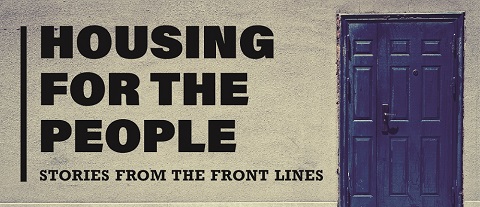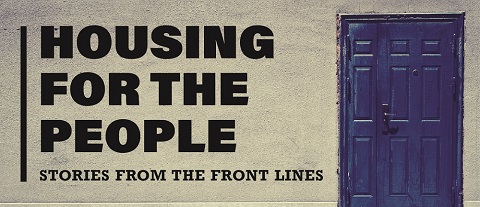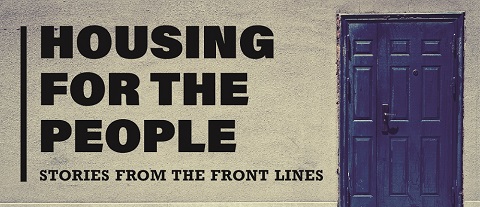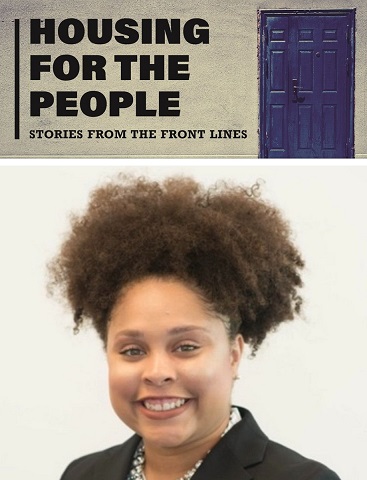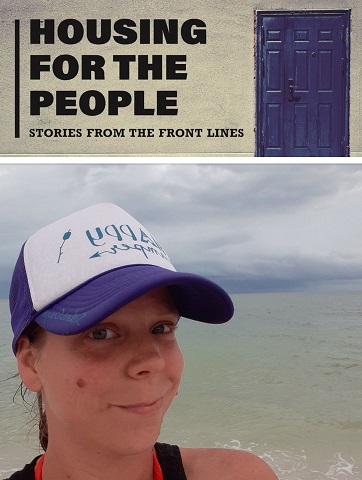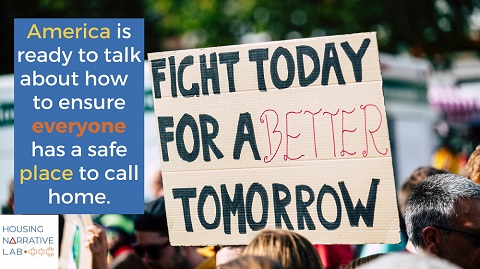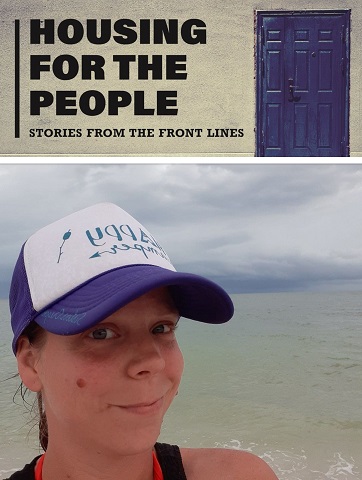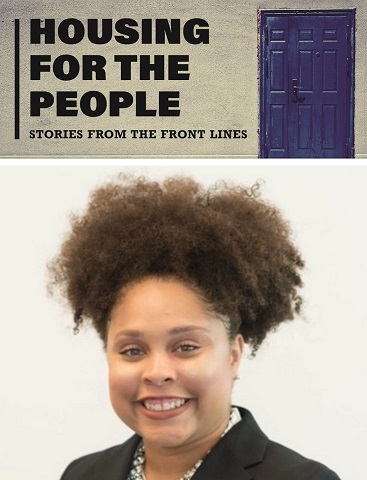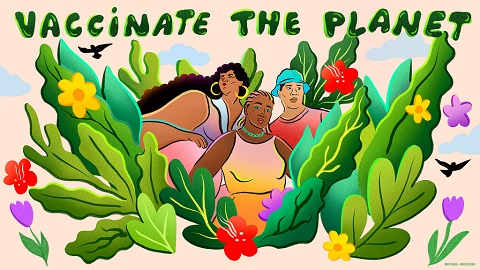By Melissa Fulton, The Big Issue Australia
“You know, it’s the simple things you miss when you’re homeless for a while,” says Big Issue vendor Damien T from Adelaide. “Stuff like getting up and jumping in the shower, all that stuff. I’m enjoying those little perks more than I thought I would.”
Damien was provided short-term accommodation a couple of weeks ago, in the same week South Australia closed its borders in the fight against the coronavirus. It was fortunate timing. Before that he was sleeping rough around the city. He’d lost his job as a forklift driver, fallen behind in his rent. He had a sleeping bag to keep him warm and some case workers looking out for him. A bunch of places he visited for a hot meal, a shower, to wash his clothes and check in. But in the face of this unprecedented health crisis, it’s a relief to have a place to call his own again.
“I just got a telly yesterday,” he says. “I’ve settled in and I’m keeping my place clean. I’m following all of those procedures: sanitising, keeping clean… I’m being a little cautious myself, just keeping an update on how it’s going with the spreading and with the news and stuff. It’s all we can do really.”
As COVID-19 continues to spread and the country escalates its shutdown procedures, the messaging around what we need to do to flatten the curve of infection is ostensibly clear: just stay home. But what happens if you don’t have a home?
Critically, more than 116,000 Australians are homeless on any given night. Coronavirus adds additional levels of stress and vulnerability for those people without safe and secure housing – those who are sleeping rough, couch-surfing, in temporary stays, boarding houses, supported accommodation or severely overcrowded residences. Of further concern are the 1.5 million Australians living in “housing stress” – spending more than 30 per cent of their wages on their mortgage or rent – and at risk of homelessness, compounded by the current economic shutdown and subsequent wave of job losses.
“Our great fear is that with COVID-19, which is knocking at the doorstep of our community, is that there are going to be a lot of people with very compromised health, with nowhere to be able to take care of themselves, and they’re going to be incredibly vulnerable to this.”
The federal government’s welfare boosts and six-month moratorium on residential evictions will go some distance to ease the strain, but as Stephen Schmidtke, executive director of client services at Sacred Heart Mission, points out, you need a roof over your head to self-isolate. “Our great fear is that with COVID-19, which is knocking at the doorstep of our community, is that there are going to be a lot of people with very compromised health, with nowhere to be able to take care of themselves, and they’re going to be incredibly vulnerable to this,” he says.
Even before the bushfire season and the outbreak of coronavirus, emergency homelessness services were turning away an average of 250 people a night across the country because there just weren’t enough beds for people. And it’s not just that. Those most at risk of homelessness – migrants, First Nations people, those with chronic health conditions and, increasingly, those over 65 – are among those most vulnerable to the coronavirus.
“We haven’t got any slack in the system to draw on,” says Jenny Smith, chairperson of Homelessness Australia. “We have let the gap between income support and the cost of housing be as wide as anywhere in the Western world… And it’s when you get a crisis like this that it becomes apparent that it’s a precarious situation for the whole nation.”
The situation is moving quickly, but some emergency provisions for those experiencing homelessness are in place. The federal government has announced that $200 million will be provided to charities and other community agencies for food and other provisions for our society’s most vulnerable. In South Australia, motel accommodation will be made available to rough sleepers so that they can self-isolate. The Northern Territory has reopened its 1000-bed facility at Howard Springs – formerly used to house Australian evacuees from the Diamond Princess cruise ship – as a quarantine facility for those with nowhere safe to go. Other states have allocated funds for temporary accommodation during the crisis. Smith believes that the downturn in the tourism industry presents opportunities for safe and secure accommodation – we just have to make it a priority.
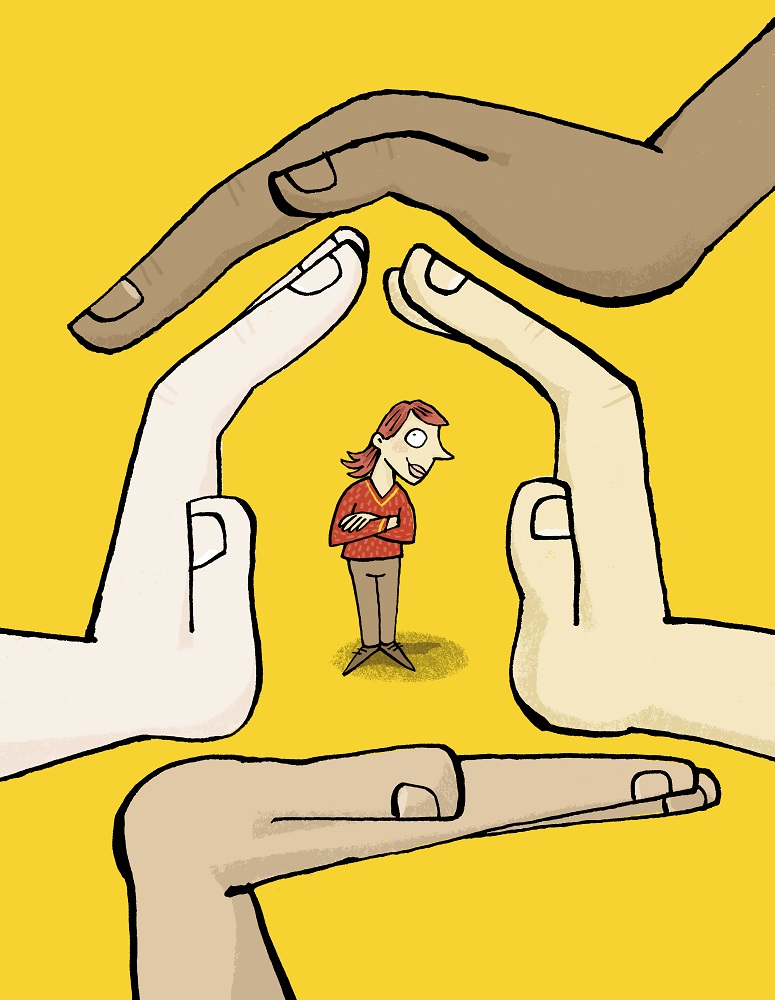
She argues that more needs to be done to get people into housing in the long term. “People spend a lot of time thinking about ingenious ways to support people living on the street, but living on the street is not safe and it’s particularly unsafe with this thing going on,” she says.
In the meantime, homelessness services are forging on, providing modified services. Stephen Schmidtke says that the challenge, for Sacred Heart Mission and other similar organisations, is to keep people safe and healthy while still addressing the social isolation and loneliness that many without secure housing experience. “Just encouraging people to keep coming back, to keep dropping in, picking up a meal, have a chat. There’s still those opportunities for people, they’re just not as they used to be and it’s definitely not the same,” he says.
Sacred Heart Mission has managed to keep most of its regular services up and running amid physical-distancing restrictions, so people experiencing homelessness still have access to outreach workers, doctors, showers and bathrooms. One of the major changes they’ve made is closing the communal dining room – which is open 365 days a year for breakfast and lunch, and where many people congregate for a meal and a chat – and switching to takeaway meals instead.
Another challenge is acquiring adequate food and toiletries and distributing them to those in need. In the wake of the coronavirus this has been challenging for several reasons – not only has the widespread hoarding of groceries placed a strain on the food supply chain (many food charities have reported dwindling supplies over the past weeks, including Foodbank WA, who receive most of their donations from the food and grocery industries), but there’s also the question of what happens to people who don’t have the means or the capacity to buy and store supplies in bulk: “The trouble with rough sleeping is you can’t carry much stuff around with you,” says Jenny Smith. “Choosing whether to carry around your heart medication or your mental health medication or your hand sanitiser – it’s a difficult choice really. It’s just not practical.”
“We have let the gap between income support and the cost of housing be as wide as anywhere in the Western world…and it’s when you get a crisis like this that it becomes apparent that it’s a precarious situation for the whole nation.”
Before the lockdown, Big Issue vendor David had been selling from his pitch in Perth for around nine years. He sleeps rough, something he doesn’t advertise, but has done on and off for years. A few weeks ago, he noticed the services he relies on were changing. Some were shutting down or running at a reduced capacity. This means crowds at other facilities, and the extra strain, combined with physical-distancing measures, means he sometimes has to wait around for two hours for a shower – rather than the usual 15 minutes.
He also noticed a change in the atmosphere. His Big Issue pitch was outside a supermarket, and people seemed a little on edge. Fewer people were stopping to chat: “The shopping centre’s been mad. Packed-out. People panic-buying toilet paper and pasta and sauces and just whatever they can get their hands on.”
Stephen Schmidtke urges the community to stay human at this difficult time, and reminds us that we’re all in this together: “Really, what people are beginning to experience now is what other people experience all the time – that feeling of insecurity, that feeling of vulnerability, that feeling of not knowing what’s going to happen tomorrow, that feeling of general anxiety of what might happen – Am I safe? That’s how some people live 365 days a year.”
David insists that he worries more about his customers than they should worry about him – “I’m pretty self-sufficient, you know.” He’ll continue to look after himself and invites everyone else to do the same. But he believes that if the situation worsens, governments will need to step in. “They’re gonna have to do something because there’s a lot of homeless people, and I don’t know that they’re going to be able to put them all in one place.”
Find out how you can help vendors of your local street paper during the coronavirus pandemic here.









